Latest news about Bitcoin and all cryptocurrencies. Your daily crypto news habit.
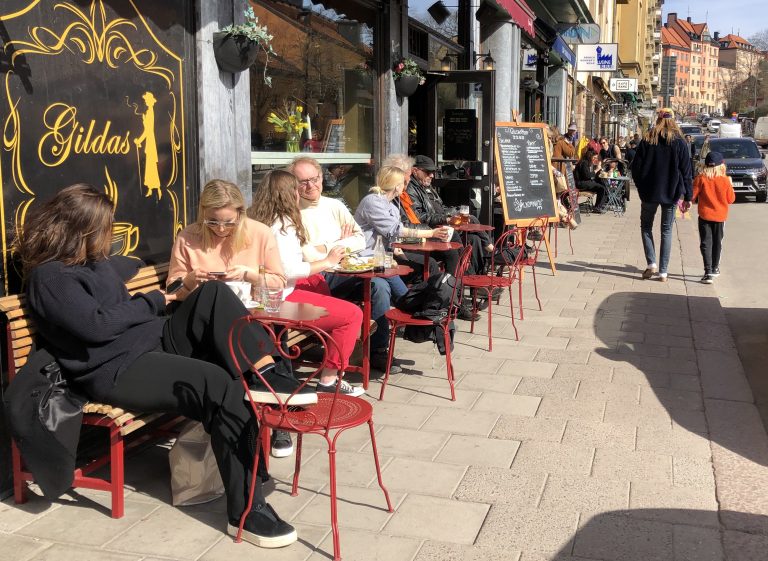
Pundits globally are flabbergasted that Swedes still go to cafés, eat at restaurants and hang out in parks without face masks on. The coronavirus in Sweden has so far claimed 611 deaths, with 7,849 confirmed cases. Swedish people still send their kids to school and are not hoarding much of anything compared to countries like the U.S. However, just like in most of the world, many businesses are hit hard and the country’s central bank has fired up the printing presses.
Also read: Major Swedish Bank Fined $386 Million for Hiding Money-Laundering Evidence
The Swedish Central Bank Has Fired Up the Printing Presses
The Swedish central bank, Riksbanken, the world’s oldest-running operation of its kind, has predictably responded to the crisis by starting the printing presses. They’ve promised banks a 500 billion SEK ($55 billion) credit line to “grease” the wheels, making sure there is enough liquidity in the system. Riksbanken chief Stefan Ingves has also stated that there are no limits to how much these presses can print, carefully avoiding the term QE (quantitative easing). Ingves also stated at a press conference:
The Riksbank stands ready to do more if and when necessary to help the Swedish economy get through this crisis as well.
Citing liquidity problems on the financial markets, the Swedish central bank is now planning to buy government, corporate and mortgage bonds. It is also auctioning USD-denominated loans for around $70 billion. Riksbanken has already increased its government bond-buying target by $30 billion, after leaving its most important interest rate — the overnight repurchase rate — at zero percent.
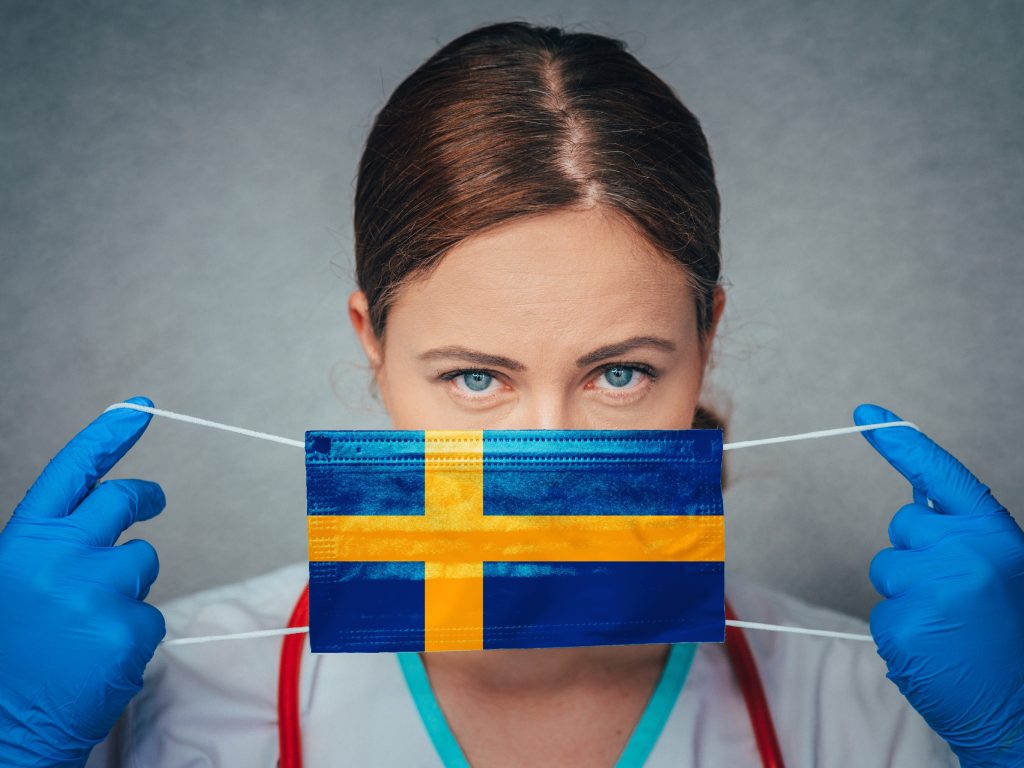 Few people wear face masks in Sweden.
Few people wear face masks in Sweden.
Swedes Don’t Let the Recently Elected Leader Call All the Shots
One of the explanations for the Swedish approach to lockdowns is its rather unique governance system. Swedes don’t let the recently elected political leader call all the shots. Here, the local authorities are actually in charge, or at least that is the design of the Swedish system, and the country’s unique response to the coronavirus pandemic may be viewed in this light. It’s a form of democracy comparable to the systems in Finland and Switzerland, where the state apparatus has also aimed for the decentralization of power for centuries. In contrast to the never-ending stream of decrees from “strong leaders,” like Trump or Erdogan, and their citizens’ (apparent) quick obedience, in Sweden the centuries-old authorities often have a larger say in how things should progress than the prime minister, and its people actually listen.
 Many pundits and politicians worldwide are wary of the course of action taken by the Swedes, whose ideas on how to flatten the famous curve will undoubtedly be analyzed in great detail in the aftermath of the covid-19 pandemic.
Many pundits and politicians worldwide are wary of the course of action taken by the Swedes, whose ideas on how to flatten the famous curve will undoubtedly be analyzed in great detail in the aftermath of the covid-19 pandemic.
Consequently, the Swedish public has followed closely along with the Swedish health authorities’ daily TV-broadcasted explanations on which measures might be effective. For example, washing hands and physical distancing are, but wearing masks may not be so much. Protecting the high-risk groups is a priority, but schools, workplaces, and restaurants stay open for all else — albeit not crowded and with new safety routines to avoid spreading the virus. This approach may be summed up by the unique Swedish word “lagom,” which roughly means “just right,” “not too much,” or “not too little.” Lately though, reports of spreading covid-19 infections have been seeping out from many elderly homes in Sweden. A daily updated map on the number of cases and deaths in the country can be found here.
The Swedish ‘Lagom’ Measures Will Be Analyzed in Great Detail
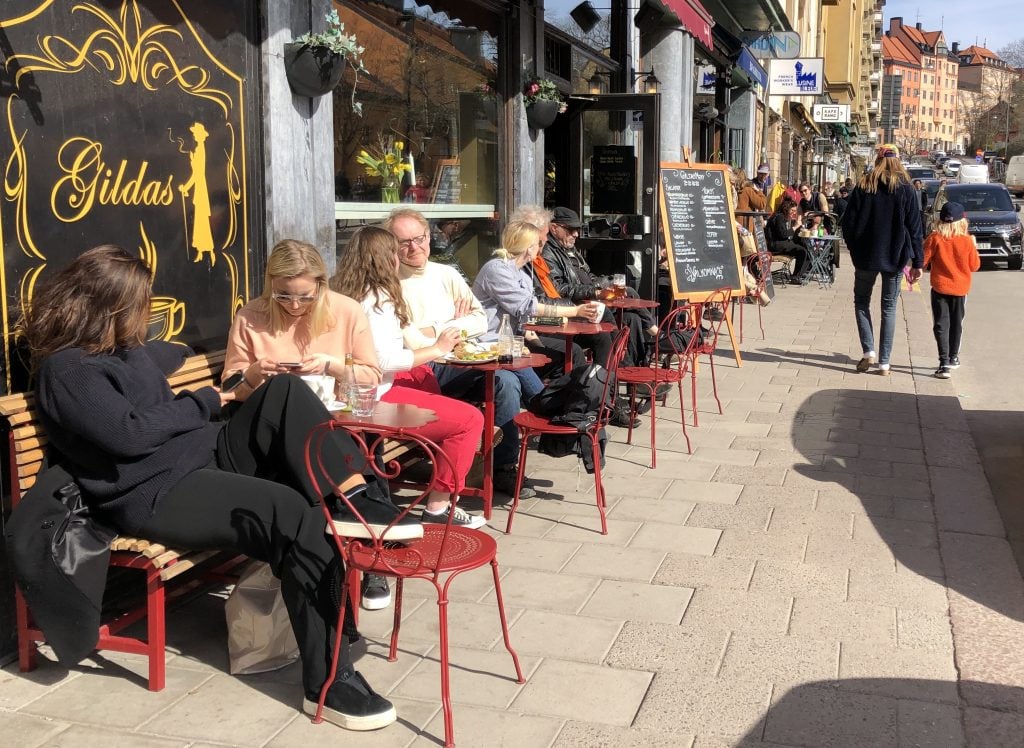 Snapshot taken in April during coronavirus pandemic at Nytorget, Södermalm, central Stockholm. People enjoy the great weather hanging out in cafés and restaurants.
Snapshot taken in April during coronavirus pandemic at Nytorget, Södermalm, central Stockholm. People enjoy the great weather hanging out in cafés and restaurants.
In the aftermath and analysis phase of the coronavirus pandemic, the Swedish responses to the virus and subsequent “lagom” actions taken will be analyzed in great detail. Still, many cafés, restaurants, and shops stay open today, April 7, even in the most afflicted areas of the capital city of Stockholm.
 By helping guests practice safe distances (no serving in bars, only table service) and wash their hands, many cafés and restaurants in Sweden stay open.
By helping guests practice safe distances (no serving in bars, only table service) and wash their hands, many cafés and restaurants in Sweden stay open.
The nordic confidence in the established authorities culls Swedish elected politicians’ urge to decree “tough” measures like a “lock-down.” They are not afraid their popularity ratings will fall if they do not act “tough,” as few Swedes find the “tough” authoritarian leader attractive. The prime minister is temporary, but the central bank and the Swedish health authority are persistent organizations, the former in operation since the 15th century.
The country is also one of the world’s most secularized societies, with the least religious folks in the world, turning to science rather than faith when combating covid-19. The Swedish health authority, Folkhälsomyndigheten (FHM), reigns supreme. Swedish politicians can avoid some of the responsibilities of “knowing best,” and can defer decisions on rules for social distancing and public transport, among other things.
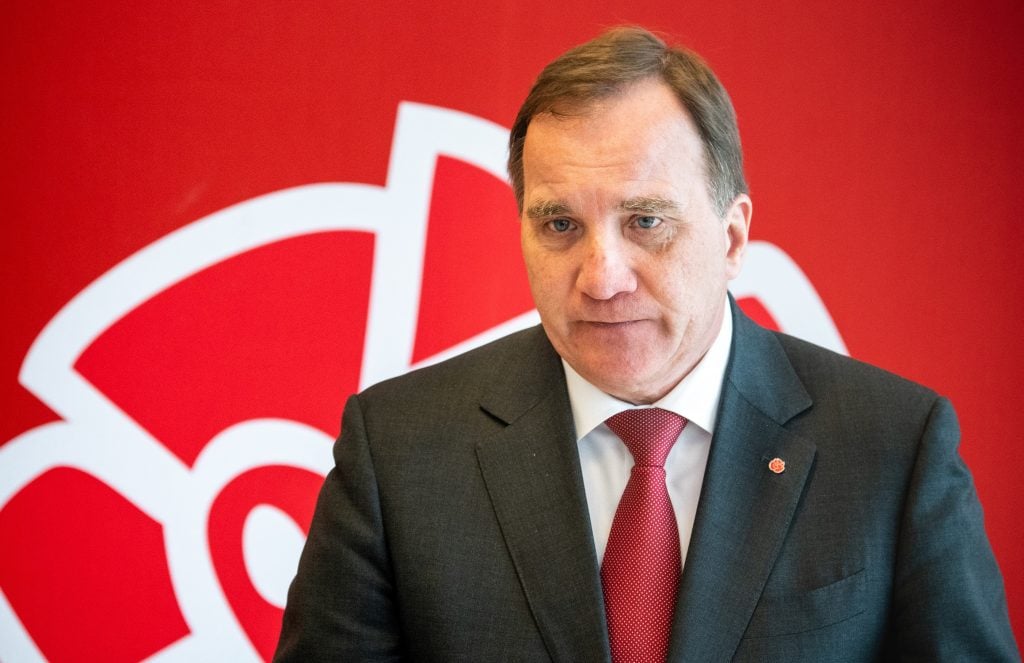 Sweden’s prime minister, Stefan Löfven, has taken a back seat somewhat, allowing the appointed authorities to prognosticate and steer what actions are to be put in place.
Sweden’s prime minister, Stefan Löfven, has taken a back seat somewhat, allowing the appointed authorities to prognosticate and steer what actions are to be put in place.
Swedish Prime Minister Stefan Löfven often refers to letting “the experts” steer, instead of having himself prognosticating the future and deciding on actions to counteract a never-before-seen virus.
Swedish Central Bank Testing Its Own Digital E-Coin
In the meantime, while the coronavirus has infected at least one employee at the bank, the Swedish central bank is testing its own digital dollar, the “e-krona.” When asked about the project, its chief Stefan Ingves repeatedly told journalists that “Bitcoin is not money,” but that a digital dollar is needed to keep up with the times.
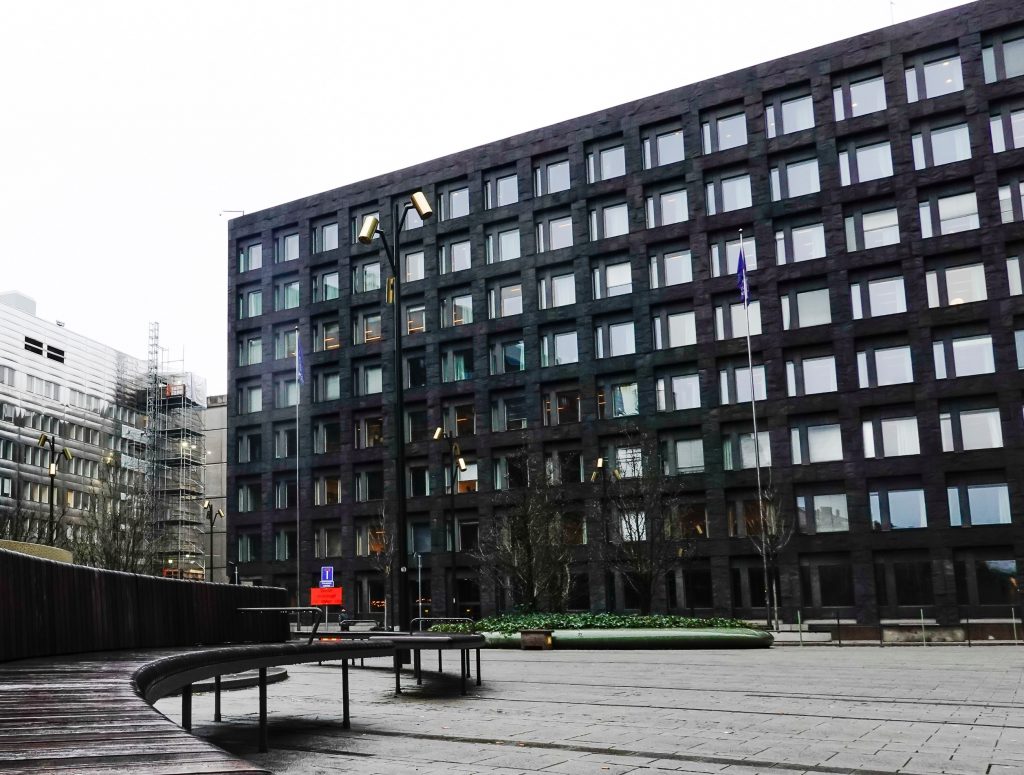 “The Riksbank sees potential problems with the marginalisation of cash and has therefore initiated a pilot project to develop a proposal for a technical solution for Swedish kronor in electronic form, an e-krona.” – Quote from Riksbank.se (pictured above: The Riksbank/central bank offices in central Stockholm).
“The Riksbank sees potential problems with the marginalisation of cash and has therefore initiated a pilot project to develop a proposal for a technical solution for Swedish kronor in electronic form, an e-krona.” – Quote from Riksbank.se (pictured above: The Riksbank/central bank offices in central Stockholm).
By introducing its own electronic currency and moving away from paper cash, the central bank could actually continue lowering the interest rate into negative territories. Sweden is already hailed as the world’s most cashless society. When few have access to actual cash, few can benefit from those negative interest rates by hoarding cash under the mattress. The beneficiaries of some loans will reverse; the lender will have to pay, while the beneficiary of the loan will receive extra interest from taking out a loan. In Germany, people are already paying to lock up cash in 30-year government bonds, and in Denmark negative interest rate mortgages have been introduced. Where these strange actions will take the economy is hard to say. Is this whole process, in the end, giving the central bank a new tool to “reverse-inflate” away loans?
The reactions to the covid-19 pandemic by politicians and central bankers may lead to disastrous, long-term effects on the economy, as politicians print way too much currency trying to fix the current slowdown. They inadvertently inflate away people’s savings and paychecks over the longer term. Printing paper cash or the equivalence in electronic cash (creating debt) is not the same as “creating money,” as currency isn’t money. Gold is money, however, as is bitcoin. Keynesian central bankers are now hoarding gold, while Austrian libertarians and anarchists are hoarding bitcoin. The future will tell who was right.
What do you think about the Swedish “lagom” approach to the pandemic? Let us know in the comments below.
The post Sweden’s ‘Lagom’ Response to Coronavirus: No Masks, Keep the Economy Going With a ‘No Limit’ Printing Press appeared first on Bitcoin News.
Disclaimer
The views and opinions expressed in this article are solely those of the authors and do not reflect the views of Bitcoin Insider. Every investment and trading move involves risk - this is especially true for cryptocurrencies given their volatility. We strongly advise our readers to conduct their own research when making a decision.